The start of a new year is typically filled with reminders of exciting moments: top 10 music festivals, most engaging books, and significant social events. Reflecting on 2020 is a challenge and I find I have little enthusiasm for the task. However, as I look back on a year fraught with struggle there is one Bishop Farrell Library & Archives (BFLA) accomplishment that stands out as a success, albeit with a nod to the obstacles of 2020. This past year, the staff of the BFLA planned, disassembled, and reimagined a national conference for the Catholic Archivist Group (CAG).
CAG represents Canadian archivists committed to maintaining and promoting the archives of Religious Institutes, Dioceses, and Catholic Institutions. The association functions to support membership through educational programs and workshops in archival work. The annual conference provides a forum to address issues that impact the spiritual, cultural, and social affairs of the member institutions. This education and fellowship supports the work of preserving the history of Catholicism in Canada.
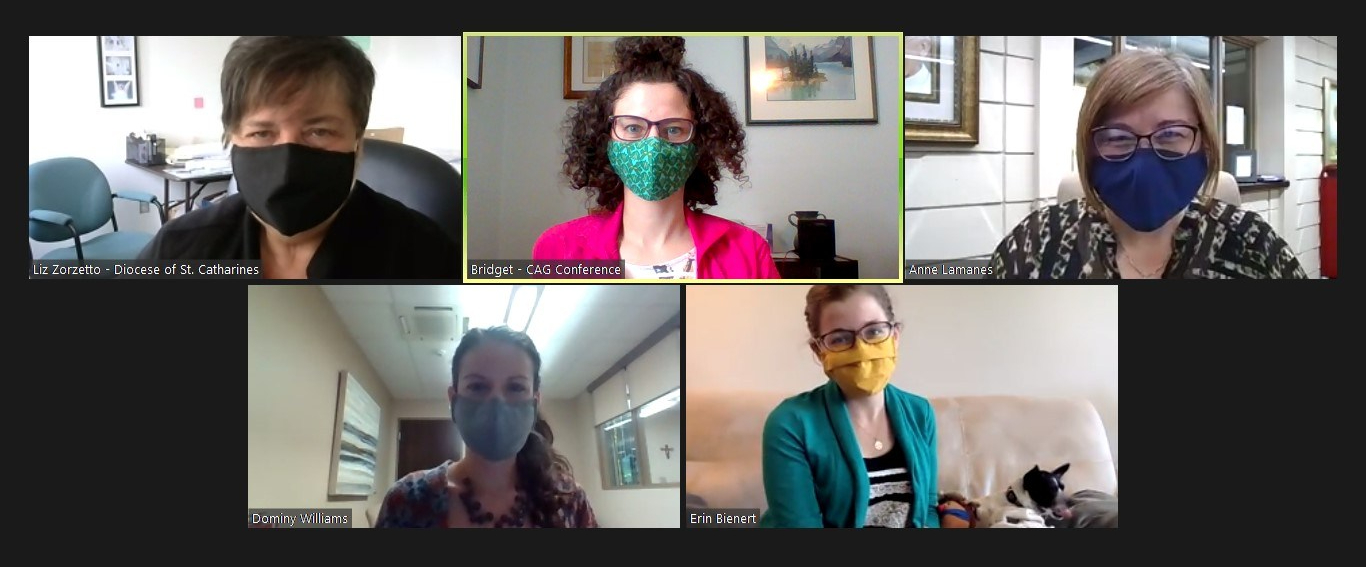
Initial planning for the CAG conference began in 2018. At this time, Hamilton was designated as the host site, our conference planning committee was selected, and a theme was chosen. The planning committee consisted of myself, Dominy Williams, as well as Anne Lamanes, and Bridget Ker, from the Diocese of Hamilton, Erin Bienert from the Archdiocese of Toronto, and Liz Zorzetto from the Diocese of St. Catharines. The theme we chose for the conference “Embracing Challenges with Grace” became more apt than we could have ever imagined! Our planning committee worked collaboratively to develop the speakers, schedule, venue, and overall vision. The conference was to be held May 25th – 28th, 2020 at Mohawk College, a location that offered affordable accommodations, as well as spacious, high-tech meeting rooms. The registration for the conference opened on February 28th. Within a month, we had issued a statement cancelling the conference due to the impact of COVID-19. Ontario was in a province-wide lockdown and our priorities quickly switched from conference planning to meeting the needs of our families and communities. We had no idea just how significantly it would change our lives.
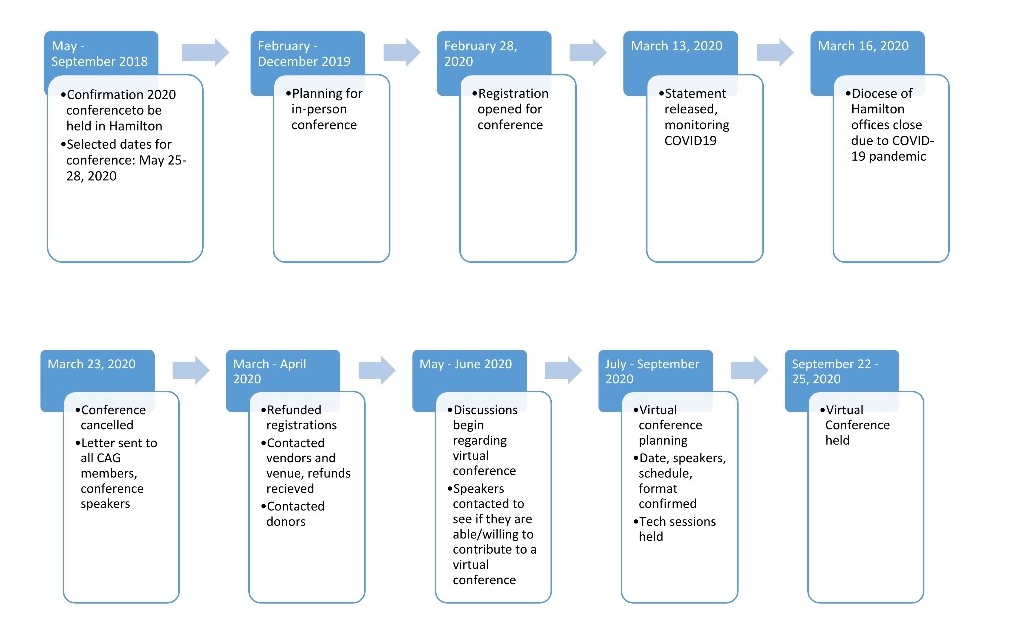
Four months passed in lockdown and behind the scenes our planning committee began to explore the possibility of a virtual conference. We still wanted to provide the collegiality, professional enrichment, and community building that our conferences always afford – and we weren’t ready to give up on the hard work and passion we had already put into the planning! However, what would a virtual conference look like? Our association had never offered virtual programming of any kind. We were coming to this challenge fresh, with a huge learning curve. We also recognized that conference speakers and contributors were now facing unexpected demands on their lives. Would we still be able to put together a conference program that honored our original intent? And since we set the tone for the conference in our choice of theme, could we do it all with grace!?
Pivoting to a new platform during a pandemic is not the same as planning for a virtual conference. We opted not to rush into it, taking time to consider the pros and cons of embracing a new model of interaction. We endeavored to be mindful in providing space for all conference contributors to decide what they could manage, with the belief that the health and mental wellbeing of all those involved was paramount. Despite this moderation, decisions moved quickly! July and August were spent rearranging the program and by the end of the summer we had planned a virtual conference.
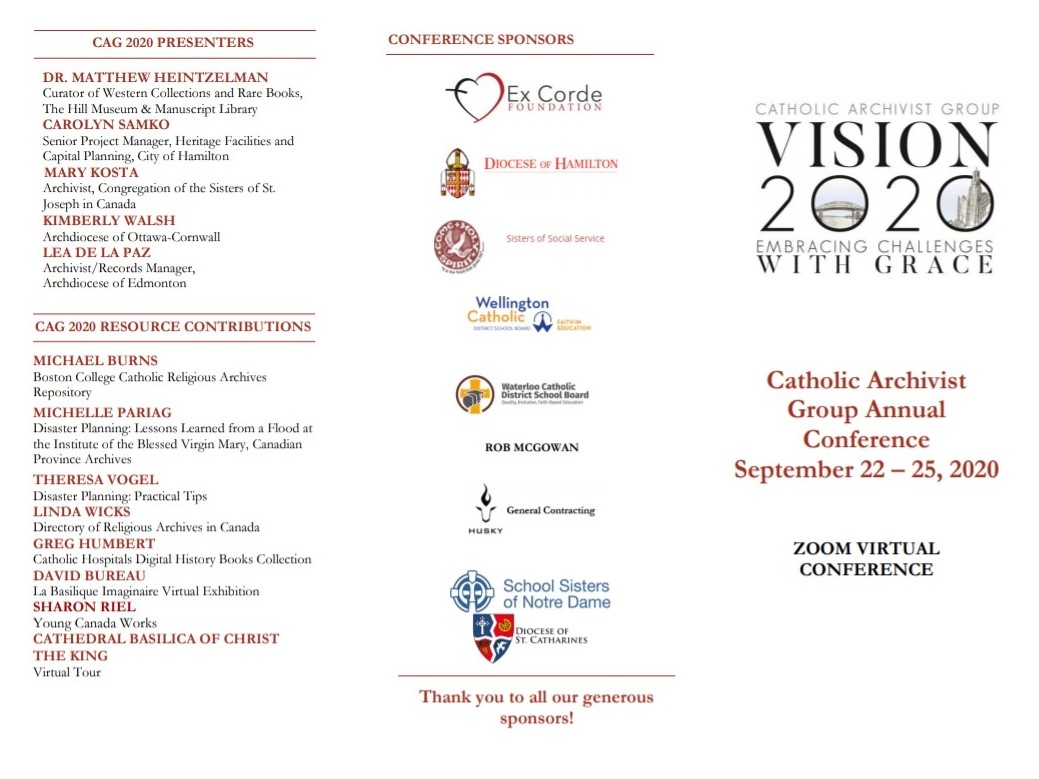
We chose Zoom as the means to share our online sessions, as it was easy to use and familiar to most people. There was a concern that the technology might be a barrier for some of our members, however, it didn’t take long to realize that our group could manage brilliantly with the available features. Now that our team is familiar with the technology, the only thing we would have done differently is to provide more group discussion and socialization through the Zoom interface, as it would have been a beneficial addition.
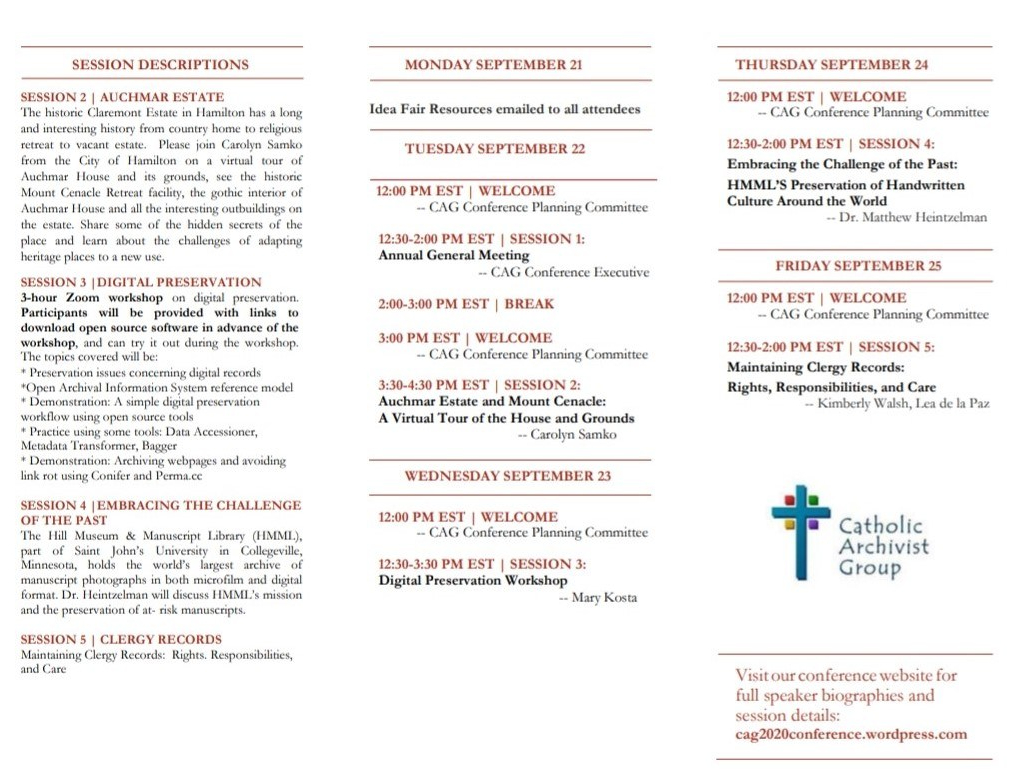
The virtual conference program developed into a mix of three presentations, a hands-on workshop, our annual general meeting, and the sharing of six written “Idea Fair” articles from CAG members. At the heart of the program was our chosen theme, “Embracing Challenges with Grace”. Originally the theme brought to mind the evolving demands on Catholic archivists as we look to tackle modern challenges, such as disaster planning, digital preservation, and the closing of religious congregations. It took on new strength as COVID-19 upended our lives, both personally and professionally, and challenged us to adapt to new ways of thinking, working, and supporting each other. We were all called to reassess priorities and to refocus our values, asking ourselves vital questions: Have we been providing the services needed to best support our administrations, researchers, and staff? How prepared are we when disaster strikes? And on a broader scale, are we as a society meeting the needs of our most vulnerable? These appraisals opened a window for contemplating where we need to step up and, conversely, where we should scale back. In our small way, we hoped that the conference would emphasize the opportunities we have to rise to the challenges of our profession.
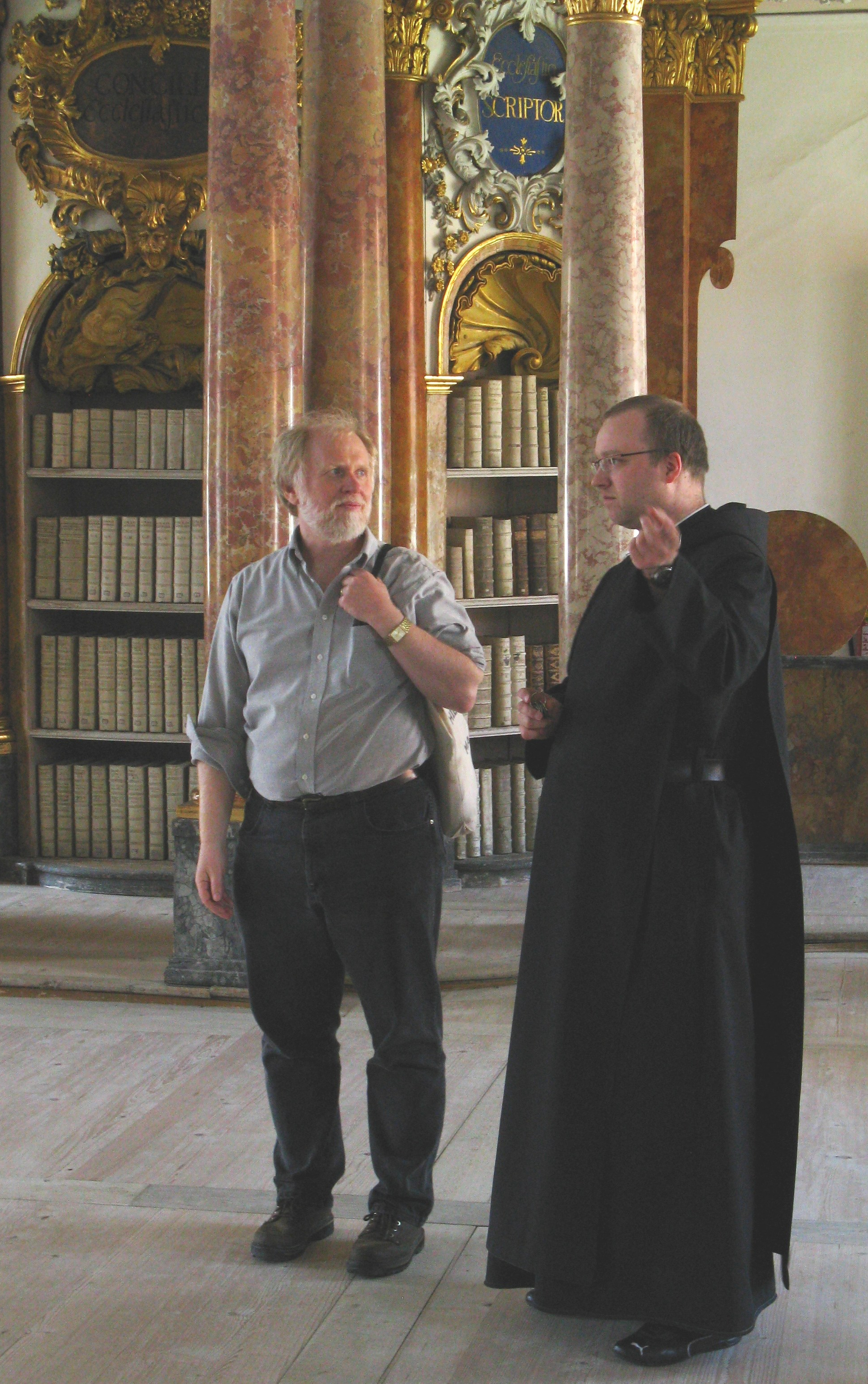
Our keynote presentation by Dr. Matthew Heintzelman, from the Hill Museum and Manuscript Library (HMML), explored how the professional skills of archivists and librarians can be used on a global scale to safeguard cultural heritage. Since 1965, HMML has been reproducing religious manuscripts threatened by war, disaster, looting, and neglect. They work to ensure that these manuscripts are preserved and accessible for future generations and have digitized more than 50 million hand-written pages dating back to the Middle Ages. By partnering with local communities and utilizing current technologies, they are able to bring people together and document cultures and beliefs through the preservation of handwritten texts. The mission of HMML spoke directly to our theme, as one of our conference attendees remarked, “In this age of divisiveness…this work of uniting our world through making these manuscripts available is such a great gift, meant to promote our global unity”.
Carolyn Samko, from the City of Hamilton Heritage Facilities and Capital Planning Department, provided an overview of the historic Auchmar Estate, a building that has been adapted to meet the multifaceted needs of its owners and the surrounding community throughout its 165-year history. The building had functioned as a family home, a covalence facility for members of the Royal Canadian Air Force, a spiritual retreat centre led by the Sisters of Social Service, and now as a city-run historic home poised for adaptive reuse. Originally scheduled as an on-sight tour, the virtual session was a wonderful opportunity to share some Hamilton history, an element that was otherwise lost in the online format. It also provided a nice connection to the Sisters of Social Service who ministered in Hamilton and owned the Auchmar Estate for 52 years.
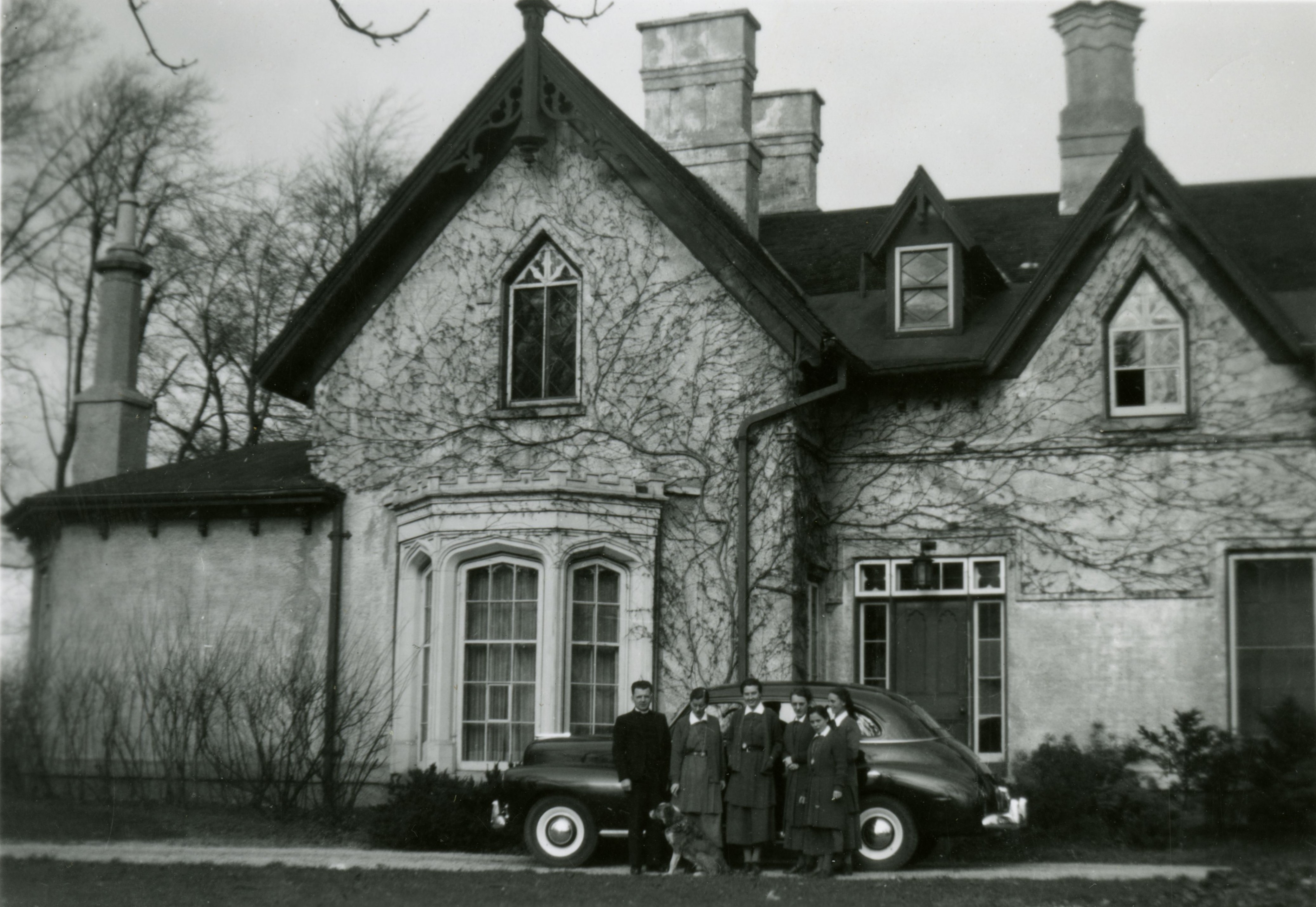
Mary Kosta, Archivist for the Congregation of the Sisters of St. Joseph in Canada, delved into the challenges of preserving digital records, providing practical tips and the opportunity for the hands-on application of digital preservation workflows. The online format of the conference allowed us to try out the steps on our own computers. The session offered us all a much needed confidence boost for taking on the daunting but necessary task of digital preservation.
Lea de la Paz, Archivist for the Archdiocese of Edmonton and Kimberly Walsh, from the Archdiocese of Ottawa-Cornwall, broached the complicated topic of clergy records, discussing our rights and responsibilities as those tasked with maintaining and reviewing confidential and sensitive materials. They challenged us to consider not only how we care for the documents, but also how we care for ourselves.
The sessions alone provided a rich collection to weigh how we apply our professional knowledge to the demands of 21st century archives. Supplementing this robust program were the voices of many of our CAG members, through the contribution of “Idea Fair” articles on important topics such as disaster planning, developing directories for our histories and institutions, accessing funding opportunities, and the importance of collaboration.
In the end, the virtual conference went more smoothly than we could have anticipated. We had a wonderful turnout with approximately 60 attendees from across Canada. The speakers rose to the occasion and offered fantastic, dynamic and constructive sessions. Members were engaged, asking thoughtful and intriguing questions, and the technology worked without any glitches. In some ways, the online format allowed us to present a conference that was more accessible than ever before. It permitted those who would not typically be able to travel to attend. We also decided to waive all conference fees, opting to rely on donations to cover any associated costs. At a time when many individuals and institutions were faced with financial concerns, we strived to make the conference as barrier free as possible. There is no replacing the in-person fellowship that our conference typically affords, however, despite all of the challenges, our 2020 Catholic Archivist Group Conference was a success!
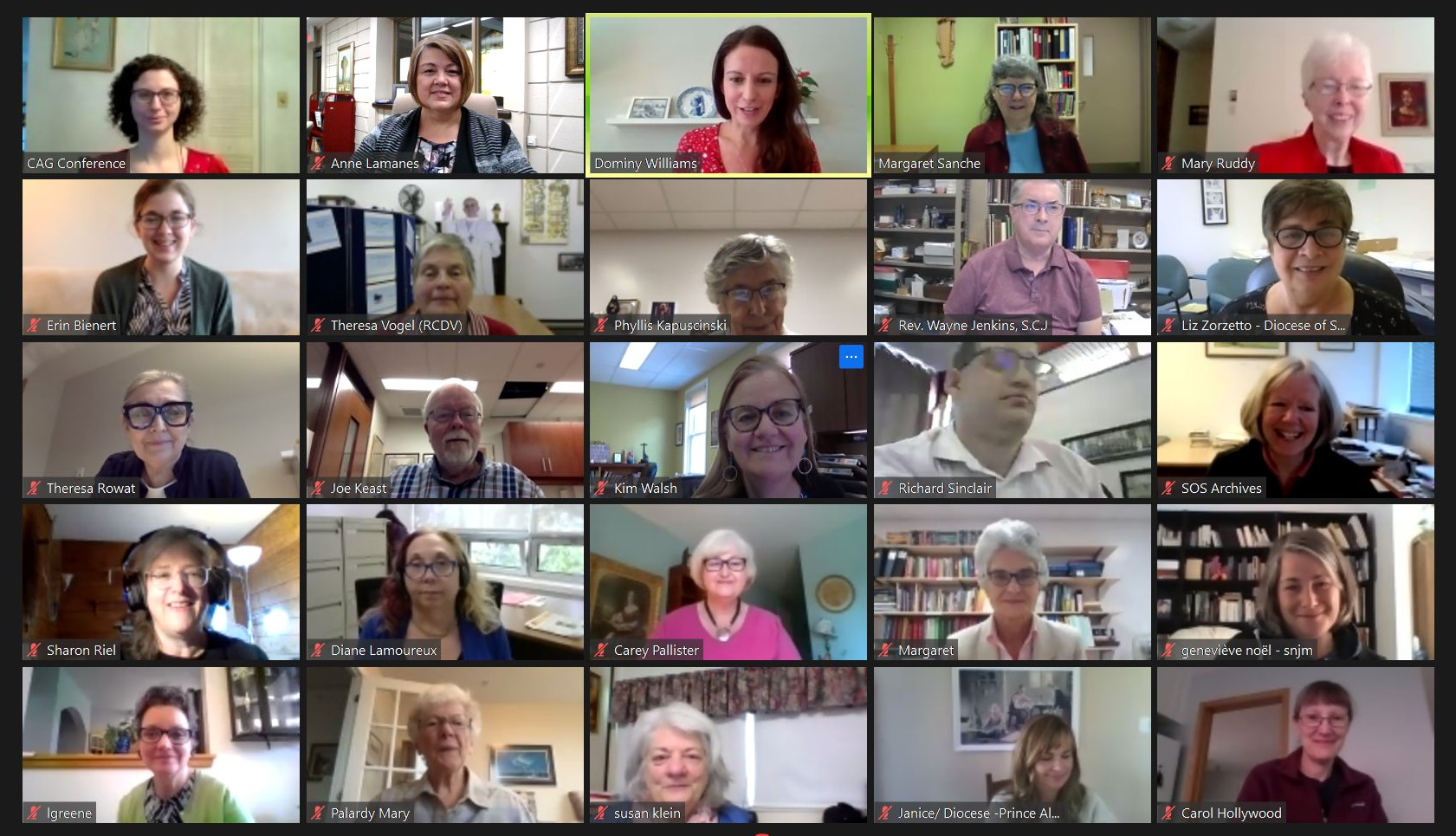
Our ability to develop this first ever CAG virtual conference was a testament to the thoughtfulness of the members of the Catholic Archivist Group and the extended communities that we brought with us to the task. We were sustained by the support of the CAG Executive and the encouragement and prayers that were sent our way by CAG members. The Diocese of Hamilton, through His Excellency Bishop Douglas Crosby, our Chancellor of Spiritual Affairs Msgr. Murray Kroetsch, our Chancellor of Temporal Affairs Mr. Jim Long, and the rest of our “Chancery family”, were also a source of reassurance, as were our sponsors, who committed to assisting our conference even when we were faced with cancelling and reimagining our way forward. The highlight in this endeavor was getting to know our CAG community better and working closely with colleagues. Our conference planning committee remained a dedicated team throughout, always kind, compassionate, and positive. We worked well together in a spirit of hospitality. It was this blessing that allowed room for grace!